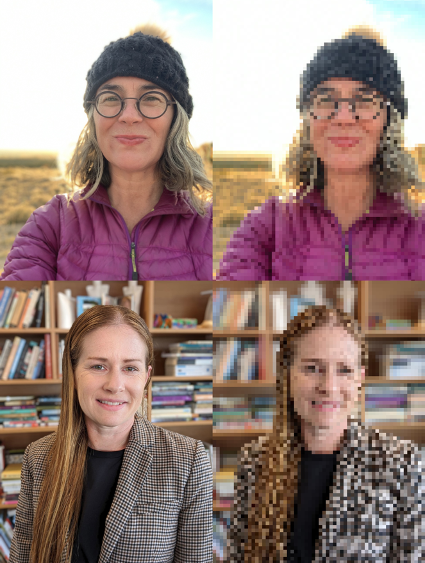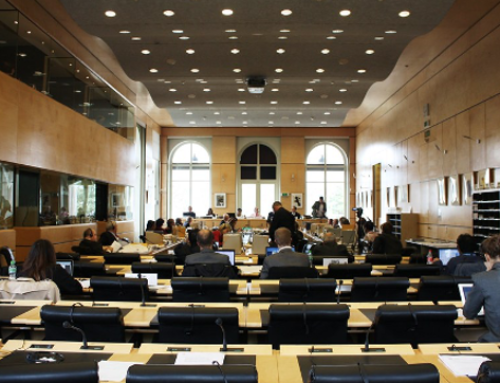Why do we use pseudonyms? For many scholars the unironic answer is: “I don’t know. We’ve just always done it this way.” How is it that we explore the habitus of others, but are unable to recognize our own? That is, despite the energy and time anthropology invests in its own reflexivity, anthropologists have left such as major topic as the effects and ethics of pseudonym use mostly unexamined. In this collection of essays, we contend that the use of pseudonyms often has high ethical stakes for research participants and ethnographers that we have not sufficiently considered as a discipline. Real consequences are involved; this is not simply a technical or methodological matter of anonymity. Decisions about whether to use or not use pseudonyms concern anthropologists around the world and from different subfields. Our contributors are cultural, linguistic, and visual anthropologists who work in fieldsites as varied as Tibet, Nepal, the Caribbean, Switzerland, Israel/Palestine, Tanzania, the Democratic Republic of the Congo, and Canada. Pseudonyms affect us all.
A search for anthropological reflections on pseudonyms yields a great deal of miscellany and oddments. In the acknowledgment sections of our books, we often rue our inability to name fieldwork interlocutors. At times we reflect on how pseudonyms are ineffective in certain communities, but we use them anyway, an experience shared by several of our contributors. George W. Stocking Jr., our detail oriented in-house historian of the discipline, does not discuss the origins of their use. Here and there, in essays and articles and even letters to the editor, we discuss problems with pseudonyms. Most of our discussions are about how to effectively implement pseudonyms (Nelson 2015; Vorhölter 2021) or concerns with once-concealed identities later revealed (Fisher 1980), rather than asking why we are using them in the first place. We contend that we need to seriously revisit the “why” of pseudonyms, rather than skipping ahead to a conversation about how to use them.
Thoughtful anthropological reflections on pseudonyms are scant but valuable. Jason Throop considers how using people’s actual names rather than pseudonyms changes the ethical commitments we make to those with whom we work with, arguing that we become more acutely and transparently responsible for what we say about people (2014). Shannon May (2010) directly questions whether pseudonyms are always ethical, asking what conversations or rebuttals are prevented by not using people’s real names as part of our empirical data. Her discussion draws on geographer Jared Diamond’s naming in the New Yorker of individuals he claimed were engaged in a tribal blood feud in Papua New Guinea. The accused individuals refuted his claims and also filed lawsuits against Diamond and the New Yorker. Anthropologists of Papua New Guinea familiar with the backstory criticized Diamond for numerous reasons, including sloppy research methods, ethics, and for not using pseudonyms (Fluehr-Lobban 2009; Golub 2009; Sullivan 2009). May counters that this incident shows that by not naming individuals, scholars protect themselves in eliminating the ability of research subjects to publicly engage or challenge their work: “To produce knowledge about someone without it being possible for that person to reflect on it and respond to it is analytically timorous and ethically negligent” (May 2010, 10, 13). Is she right? Does a rote use of pseudonyms enable ethnographers to “wantonly indulge one’s own authority and hide unnecessarily beyond methodological artifice” (May 2010, 13)? These are fighting words, and yet, over a decade later, her questions remain unanswered.
Who requests or demands anonymity for ethnographic research participants? We rarely consider this. But who makes these requests? Scholars, research review boards, research participants, or communities? In our preparation for writing this essay collection, a group of us discussed pseudonyms on a video call in June 2021.1 We were surprised to collectively realize that we—the researchers—were often the ones with expectations about anonymity. In some cases, this expectation was met with indifference or even resistance by our research participants. The use of pseudonyms is partially that of an inherited disciplinary custom deployed unreflectively. Inherited custom has its place, but this place is not in ethics. We need a more rigorous, responsible, and inclusive decision-making process for naming or not naming our research subjects rather than presuming that pseudonym use is always the right approach. Our conversations about pseudonyms should not only be about protection or anonymity. Instead, as we discussed on our video call, these conversations need to open to other issues. For example, pseudonyms create the assumption that people are available for science (Weiss 2021), impact how people become ethnographic characters or archetypes rather than specific individuals (Tate 2021), do not easily or ethically accommodate the range of relationships we have in fieldwork, from deep, intimate connections to one-time meetings (Cattelino 2021), and the fact that we are often unaware that some research ethics boards do allow for the use of real names in ethnography (Shneiderman 2021). Overall, this conversation matters to us because it matters to the people with whom we work, people who want their stories to be told and often, and perhaps increasingly, want their names included.

Pixelation as “pseudonym.” Image by Erica Weiss.
One of the most common reasons given for our use of pseudonyms is that they help to protect research participants. Often this desire to protect is automatic, implicit within the disciplinary norms in such a deep way that it no longer requires explicit ethical justification. But this too has a history. Some early anthropologists displayed a profound indifference to the lives and well-being of the communities they encountered. But, in the aftermath of World War II and the realization of the full horror of the atrocities committed, including those committed in the name of medical and scientific experimentation, many disciplines, including anthropology, began to take research ethics more seriously. The ethical culture produced was oriented towards the protection of human subjects. Parallel with post-war American senses of triumph and benevolence, a sense of global stewardship was foundational to new ideas about ethics. Over time, stewardship as ethical practice included efforts to minimize cultural impact, ideas about confidentiality and anonymity, the adoption of specific considerations for vulnerable populations (who were sometimes problematically defined), and the creation of formalized procedures for informed consent. Overtones of paternalism course throughout a genealogy of ethics in anthropology. This is not only past tense, but is also part of our contemporary language of ethics. The protection of human subjects paradigm frames disciplinary ethics today.
A GENEALOGY OF PSEUDONYM USE AS ANTHROPOLOGICAL ETHICS
A review of twentieth-century ethics conversations suggests that early ideas about the universality of anthropological knowledge led to pseudonym use for both individuals and communities (e.g., Reed and Szklut 1988; Szklut and Reed 1991). This was followed by mid-20th century scandals, including Project Camelot, that resulted in adoption of biomedical models for research ethics as well as specific preventions against government abuse of research.
In the USA, the American Anthropological Association first issued guidance on ethics in its “Resolution on Freedom of Publication” in 1948, advising that “the interests of the persons and communities or other social groups studied are protected.” This language was maintained in the 1967 “Statement on Problems of Anthropological Research and Ethics.” Anonymity is introduced in the 1971 “Principles of Professional Responsibility,” under “Relations with those studied”:
-
- “In research, anthropologists’ paramount responsibility is to those they study. When there is a conflict of interest, these individuals must come first. Anthropologists must do everything in their power to protect the physical, social, and psychological welfare and to honor the dignity and privacy of those studied. a. Where research involves the acquisition of material and information transferred on the assumption of trust between persons, it is axiomatic that the rights, interests, and sensitivities of those studied must be safeguarded.
-
- b. The aims of the investigation should be communicated as well as possible to the informant.
-
- c. Informants have a right to remain anonymous. This right should be respected both where it has been promised explicitly and where no clear understanding to the contrary has been reached. These strictures apply to the collection of data by means of cameras, tape recorders, and other data-gathering devices, as well as to data collected in face-to-face interviews or in participant observation. Those being studied should understand the capacities of such devices; they should be free to reject them if they wish; and if they accept them, the results obtained should be consonant with the informant’s right to welfare, dignity and privacy.
-
- (1) Despite every effort being made to preserve anonymity, it should be made clear to informants that such anonymity may be compromised unintentionally.
- (2) When professionals or others have used pseudonyms to maintain anonymity, others should respect this decision and the reasons for it by not revealing indiscriminately the true identity of such committees, persons or other data.”
These principles were updated as needed over the decades. The current AAA “Principles of Professional Responsibility” date to 2012. This document asserts that researchers must establish “expectations regarding anonymity” and “make clear that despite their best efforts, confidentiality might be compromised.” The “Principles” link these two assertions to two hypothetical cases—Case 5: Anonymity Declined and Case 6: Anonymity Revisited—from the 1987 Handbook of Ethical Issues in Anthropology. Each of these hypothetical cases involves a community directly asking an anthropologist to use real names in research publications. In each case, the anthropologist chooses to use pseudonyms instead.
A 21ST-CENTURY APPROACH TO PSEUDONYMS
Anthropology has changed dramatically in the 21st century, including the nature of our fieldwork and professional relationships. Collaborative approaches, once experimental, are today mainstream and the gap between “research subject” and “colleague” is for many rapidly fading. We are way beyond “when they read what we write,” the now jarring title of a 1993 book. Just three decades ago, it was not expected that the community with whom one conducted their research would be part of the reading audience for the scholarship. Now, those with whom we work represent themselves, theorize themselves, represent us, theorize us. Digital technologies have changed the dissemination of our work as well as responses to it. As a result, a great deal of our ethical discourse and norms appear anachronistic and even unethical in some cases. One example is how those with whom we often have intimate relationships of care and long term intellectual exchanges are conceptualized as the “human subjects” of our research. Our ethical discourse can infantilize research participants, while simultaneously reducing our responsibilities to them to a series of bureaucratic precautions. As a result, our performance of these tasks of conforming to “ethics” often become perfunctory and impassive, distanced from our actual fieldwork relationships.
The ethics of our actual human relationships are rarely accounted for in bureaucratic paperwork. There are the ethics we use in our research, created in interactions and with community instruction, and there are the ethics we perform for bureaucracies. Sometimes these ethics might overlap, including for good reasons, but often they do not. Too often the one is irrelevant or even offensive to the other.
Democratizing and decolonizing knowledge is important. We see this, albeit unevenly, in anthropology dating back decades including in key texts such as Talal Asad’s Anthropology and the Colonial Encounter (1973) and Faye Harrison’s Decolonizing Anthropology (1991). In comparison, our conversations about consent and fieldwork ethics feel ad hoc, as if we are scrambling to catch up to where we are intellectually. With some notable exceptions, our own ethics is rarely the sustained focus of extended anthropological inquiry. Ethics also tends to be dealt with outside the framework of research, by professional organizations on a mostly irregular and impromptu basis. At best, these conversations take place in person with close colleagues, and at worst, these issues are hidden and suppressed by anxious ethnographers. For many, explicit reflection on disciplinary ethics is a brief stage in research during the application to the university IRB or research review board.2 Since we know IRBs expect to see that we will use pseudonyms in our research, we promise to do so. Chances are not bad that these sections of the IRB application were written a decade or two ago and have been copied, pasted, and passed on from one applicant to the next.
But how did this come to be? Anthropology is a discipline that stakes its self-identity in its ability and indeed willingness to undermine its own assumptions and even authority for the sake of ethical improvement. In 2020, Ryan Cecil Jobson made the case for letting anthropology burn as response to the discipline’s failure to transcend its liberal sentimental roots to confront existential global threats. There have been significant and important interventions made in the attempt to shape the discipline in the image of our current ethical sensibilities. The project of decolonizing anthropology has not shied from critically examining disciplinary norms. Others have sought to help the discipline navigate the minefields and inevitable complicities of doing anthropology in the “S@!#t times” (Alvaraez, Dattatreyan, and Shankar 2021). Nevertheless, we rarely address the nuts and bolts of all our practices with the same care.
The essays in this collection seek to change the taken for granted use of pseudonyms in anthropology. The contributors here do not converge on a single recommendation or method of determining the need or desirability of using pseudonyms. What they do best is show that the use of pseudonyms is not a neutral technique, but a practice that implicates and reflects our greatest disciplinary values. Yes, pseudonyms are sometimes about risk and the mutual management of that risk. However, as Carole McGranahan argues in her essay, pseudonyms are also about truth, about the nature of ethnographic truths, and the types of truths we want to produce for readers in and beyond anthropology. What claims can we make using pseudonyms that we cannot make with real names and vice versa? Marnie Thomson asks us to question the entire premise of pseudonyms as that of giving “fake names,” instead revealing the assumption of “real” singular and unchanging names as a figment of the Western bureaucratic imagination. In many societies and situations, truths and names do not share a linear relationship. Sometimes pseudonyms enable access and thus allow us to share stories that would otherwise remain hidden as Miia Halme-Tuomisaari argues in relation to her research at the UN. Carlo Cubero shows us that these are questions for ethnographic film as well as for writing. Reviewing early ethnographic films, and thinking especially with the work of Jean Rouch, he argues for an ethic of collaboration rather than a stagnant anonymity. The use of pseudonyms is also about respect for our teachers and those who share knowledge we use, writes linguist Mark Turin. In his essay, Turin argues that using real names enables us to be ethical in acknowledging both knowledge holders and knowledge production. Sara Shneiderman questions the very possibility of separating knowledge from those who possess and share it with us, as well as the harm that might be caused by attempts to do so. Finally, as Erica Weiss details in her essay, pseudonyms are about credit for intellectual labor, about who gets it and who is denied it. The reciprocity we so value, and attempt to provide in other aspects of our field relations, is denied with the use of pseudonyms. When is this ok and even necessary, and when is it time for us to discard pseudonyms in favor of naming our research subjects?
Notes:
[1] Video call participants were Jessica Cattelino, Carole McGranahan, Sara Shneiderman, Winifred Tate, Marnie Thomson, and Erica Weiss on June 14, 2021.
[2] For thoughtful reflections on institutional research review boards and anthropological and ethnographic research, see Bell 2014, Bell and Wynn 2021, Kohn and Shore 2017, Lederman 2006, 2007a, 2007b, 2016, Wynn 2011, 2018, and Wynn and Israel 2018.
References
Alvarez, Patricia, Ethiraj Gabriel Dattatreyan, and Arjun Shankar. 2021. “Multimodal Ambivalence: A Manifesto for Producing in S@!#t Times.” American Anthropologist 123(2): 420-427.
Asad, Talal, ed. 1973 . Anthropology and the Colonial Encounter. Atlantic Highlands, NJ: Humanities Press.
Bell Kirsten. 2014. “Resisting Commensurability: Against Informed Consent as an Anthropological Virtue.” American Anthropologist 116(3): 511–522.
Bell, Kirsten and L.L. Wynn. 2021. “Research Ethics Committees, Ethnographers and Imagination of Risk.” Ethnography, December, pages 1-22.
Cattelino, Jessica. 2021. “Pseudonyms Working Group Zoom Call.” June 14.
Fischer, J.L. 1980. “Letter: On Pseudonyms in Research.” American Anthropologist 82(3): 565.
Fluehr-Lobban, Carolyn. 2009. “The New Yorker’s Second Crisis of Connscience.” iMediaEthics, May 14, https://www.imediaethics.org/the-new-yorkerrsquos-second-crisis-of-conscience/
Golub, Alex (aka Rex). 2009. “Vengeance is Hers: Rhonda Shearer on Jared Diamond’s ‘Factual Collapse’.” Savage Minds: Notes and Queries in Anthropology, April 22, https://savageminds.org/2009/04/22/vengeance-is-hers-rhonda-shearer-on-jared-diamonds-factual-collapse/
Harrison, Faye, editor. 1991. Decolonizing Anthropology: Moving Further Toward an Anthropology of Liberation. Arlington, VA: American Anthropological Association.
Jobson, Ryan Cecil. 2020. “The Case for Letting Anthropology Burn: Sociocultural Anthropology in 2019.” American Anthropologist 122(2): 259-271.
Kohn, Tamara, and Cris Shore. 2017. “The Ethics of University Ethics Committees: Risk Management and the Research Imagination.” In Death of the Public University? Uncertain Futures for Higher Education in the Knowledge Economy, edited by S. Wright and C. Shore, 229-249. New York: Berghahn Books.
Lederman, Rena. 2006. “The Perils of Working at Home: IRB “Mission Creep” as Context and Content for an Ethnography of Disciplinary Knowledges.” American Ethnologist 33(4): 482–491.
Lederman, Rena. 2007a. “Comparative “Research”: A Modest Proposal Concerning the Object of Ethics Regulation.” Polar: Political and Legal Anthropology Review 30(2): 305–327.
Lederman, Rena. 2007b. “Educate your IRB: An Experiment in Cross-Disciplinary Communication.” Anthropology News 48(6): 33–34.
Lederman, Rena. 2016. “Fieldwork Double-Bound in Human Research Ethics Reviews: Disciplinary Competence, or Regulatory Compliance and the Muting of Disciplinary Values.” In The Ethics Rupture, edited by W. van den Hoonaard and A. Hamilton, 43-72. Toronto: University of Toronto Press,.
May, Shannon. 2010. “Rethinking Anonymity in Anthropology: A Question of Ethics.” Anthropology News 51(4): 10-13.
Nelson, Rebecca. 2015. “Pseudonyms 2.0: How Can We Hide Participants’ Identities When They’re on Pinterest?” Savage Minds: Notes and Queries in Anthropology, October 8, https://savageminds.org/2015/10/08/pseudonyms-2-0-how-can-we-hide-participants-identities-when-theyre-on-pinterest/
Reed, Robert Roy and Jay Szklut. 1988. “The Anonymous Community: Queries and Comments.” American Anthropologist 90(3): 689-692.
Shneiderman, Sara. 2021. “Pseudonyms Working Group Zoom Call.” June 14.
Sullivan, Nancy. 2009. “Jared Diamond’s ‘Light Elephants’ and Dark Revenge in The New Yorker: The Problems of Amateur Anthropology.” Savage Minds: Notes and Queries in Anthropology, May 6, https://savageminds.org/2009/05/06/jared-diamonds-light-elephants-and-dark-revenge-in-the-new-yorker-the-problems-of-amateur-anthropology/
Szklut, Jay and Robert Roy Reed. 1991. “Community Anonymity in Anthropological Research: A Reassessment.” In Ethics and the Profession of Anthropology: Dialogue for a New Era, edited by Carolyn Fluehr-Lobban, Philadelphia: University of Pennsylvania Press.
Tate, Winifred. 2021. “Pseudonyms Working Group Zoom Call.” June 14.
Throop, Jason. 2014. “Friendship as Moral Experience: Ethnographic Dimensions and Ethical Reflections.” Suomen Antropologi: Journal of the Finnish Anthropological Society. 39(1): 68-80.
Vorhölter, Julia. 2021. “Anthropology Anonymous? Pseudonyms and Confidentiality as Challenges for Ethnography in the Twenty-First Century.” Ethnoscripts 23(1): 15-33.
Weiss, Erica. 2021. “Pseudonyms Working Group Zoom Call.” June 14.
Wynn, Lisa L. 2011. “Ethnographers’ Experiences of Institutional Ethics Oversight: Results from a Quantitative and Qualitative Survey.” Journal of Policy History 23(1): 94–114.
Wynn, Lisa L. 2018. “When Ethics Review Boards Get Ethnographic Research Wrong.” In The Sage Handbook of Qualitative Research Ethics, edited by R. Iphofen and M. Tolich, 248-262. London: Sage.
Wynn, Lisa L. and Mark Israel. 2018. “The Fetishes of Consent: Signatures, Paper, and Writing in Research Ethics Review.” American Anthropologist 120(4): 795–806.
Cite as: Weiss, Erica, and Carole McGranahan. 2021. “Rethinking Pseudonyms in Ethnography: An Introduction.” In “Rethinking Pseudonyms in Ethnography,” edited by Carole McGranahan and Erica Weiss, American Ethnologist website, 13 December 2021, https://americanethnologist.org/features/collections/rethinking-pseudonyms-in-ethnography/rethinking-pseudonyms-in-ethnography-an-introduction
Erica Weiss is associate professor of anthropology at Tel Aviv University.
Carole McGranahan is professor of anthropology at the University of Colorado, Boulder.




